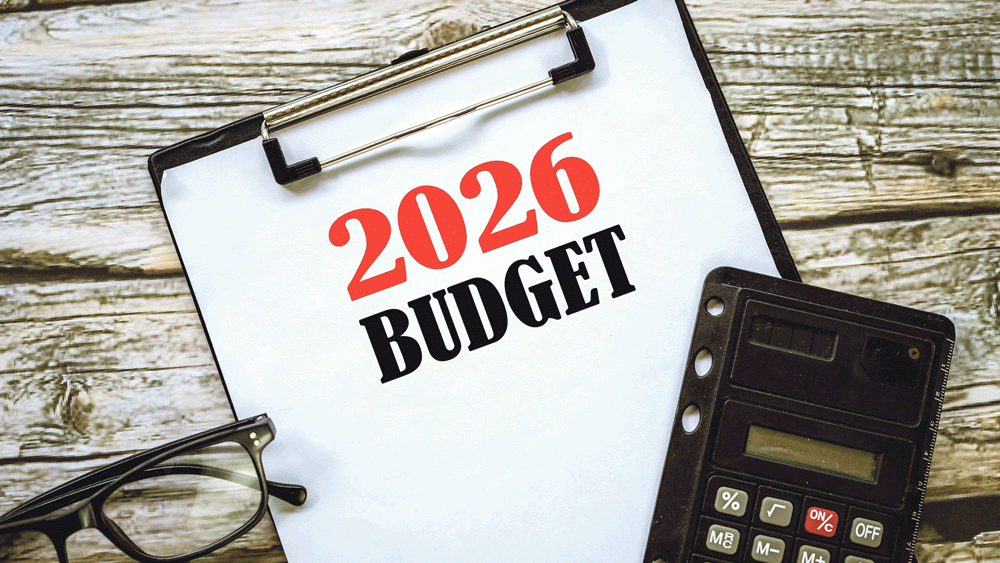
Increased spend of almost €10 billion in the budget
The government have announced an increased spend of almost €10billion for the budget, but most of this will be for capital investment versus one-off measures for ordinary people.
Budget 2026, announced this Tuesday, October 7, will increase overall government spending by €9.4 billion, most of which will “invest in our future”, according to Minister for Finance Paschal Donohoe.
The major surprise from the lunchtime announcement was a new derelict property tax, while hotels and B&Bs have been left out of the VAT rate cut for hospitality, down from 13.5% to 9% for food-led hospitality businesses and hairdressers.
VAT is also being cut for apartment developers, while the lower VAT rate on gas and electricity bills, plus the rent tax credit and mortgage interest tax relief, are all being extended beyond yearly measures.
A promised cut to college fees has been delivered of just €500, meaning students will have to pay more based on last year’s temporary reductions.
The spending breakdown is €8.1 billion allocated for public spending and €1.3 billion for cuts to taxation.
The main measures announced at a glance:
Tax, increases and credits
- No changes to the 20% and 40% tax bands for personal income tax
- The national minimum wage will increase by 65 cents to €14.15 per hour from 1 January 2026, with increases to the minimum USC rates to account for the increase
- VAT rates for food-based hospitality and hairdressers will be reduced back down to 9%, leaving out hotels and won’t kick in until July 2026
- VAT rates for gas and electricity will remain at 9%, extended to December 31, 2030
- A 50c increase on a 20-pack of cigarettes will come into effect from midnight October 8, but no increase to duty on alcohol
- Flat rate tax of 50c per millilitre of vaping liquid will come into effect by November
Housing
- The Rent Credit Tax (€1,000 for individuals, €2,000 for couples) will stay the same and has been extended out until the end of 2028
- Residential Development Stamp Duty Refund Scheme which was due to expire at the end of this year will also be extended to the end of 2030
- A new derelict property tax will be legislated for next year and “will not be lower than” the current 7% derelict property levy it’s set to replace
- Over €5bn has been committed for capital investment for housing delivery next year, with a total of €2.9bn to build or acquire new social homes
- Mortgage Interest Tax Relief is to be extended for a further two years with a reduced value applying in the final year
- VAT rates for the sale of completed apartments will also be reduced from 13.5% to 9%
Children and social welfare
- Increase of €10 for all weekly social welfare payments
- Child Support Payment weekly rate to increase to €58 for children under 12 years of age and to €78 for children aged 12 years and over, plus extension of Back To School Allowance to include children aged 2 and 3 years old
- Working Family Payments will increase by €60 per week for all family sizes, and recipients will now qualify for the Fuel Allowance, which will increase by €5 per week to €38
- Income disregard for Carer’s Allowance will increase €1,000 for a single person and €2,000 for a couple
- Funding has been earmarked for 1,717 additional special needs assistants (SNAs) and 860 special education teachers
Climate, arts and education
- The rate of Carbon Tax for petrol and diesel will increase from €63.50 to €71 per tonne, also from October 8, with the increase to be applied to other fuels by next May
- €5,000 VRT relief for electric vehicles is extended until 31 December 2026
- Basic Income for Artists Scheme to be made permanent and criteria to be extended to artist to qualify for €325 weekly payment
- Expansion of Film Tax Credit to provide 40% relief for minimum of €1 million spent on VFX plus extension of the Digital Games Tax Credit for 6 years to December 2031
- Annual student contribution fees to be permanently reduced from €3,000 to €2,500
Healthcare
- €27bn allocated for healthcare services
- 220 acute hospital beds – not including beds in new Children’s Hospital
- 280 community beds, 500 more nursing home places and an extra 1.7 million home support hours promised
- €3.8 bn allocated to disability services, with 250 new residential care places promised next year, bringing overall number of places to over 9,000
- Day service places for up to 1,400 young people leaving school
- Funding for 6,500 private assessments of needs to address backlog
Defence and justice
- Funding for 400 additional Defence Force members and for recruitment of up to 1,000 trainee gardaí

